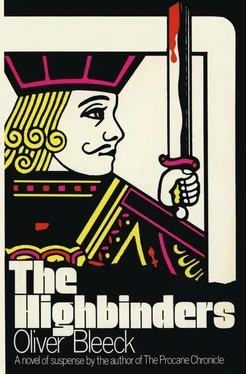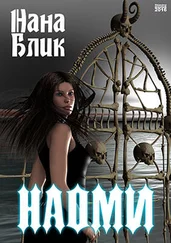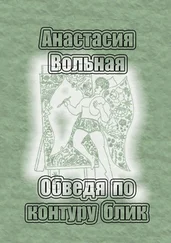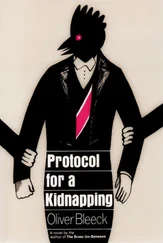I remembered then that a Volkswagen has a reserve tank. All you have to do is twist a lever that’s down underneath the dash and that cuts into the reserve tank that holds a spare gallon, I think. It only takes a minute or so, but I didn’t have a minute. I didn’t even have thirty seconds because the Rolls was already backing up. I stopped the coasting Volkswagen, grabbed the sword, jumped out, and ran across the bridge to its west side.
The Rolls kept on backing up until it was well past the VW. The Jensen stayed where it was. I was boxed.
So I stood there and watched Eddie Apex get out of the Rolls and start toward me. When I got tired of watching him I looked at the Jensen. Somebody got out of that, too. He was a big man, huge really. It was Wes Cagle. I should have known. A Jensen would be his kind of car.
They both started walking toward me. Then they started to trot. I took the sword and held it by its hilt with two hands. It was a bastard grip, I remembered being told. You could wield it with either one hand or two. I thought that they must have had big hands back then.
I saw something appear in Wes Cagle’s right hand. It glittered a little, but it wasn’t what he had used to kill Robin Styles and shoot at me with earlier. It was a knife, a switchblade, I assumed.
There was no place to run. I could stand and fight, of course, laying about me with the Sword of St. Louis, going for the legs first. I understand that that’s how it was done back then. They went for the legs beneath the shields. Or I could surrender.
I started swinging the sword above my head, around and around. I swung twice, then thrice, and on the fourth time I let it go and then I turned and watched because I had never seen three million pounds fall into a river before.
It went up in the air about thirty feet, seemed to hang there longer than it really should have, and then it fell straight down into the black waters of the Thames. It didn’t make much of a splash.
I turned back. Eddie Apex was no longer trotting toward me. I had counted on that. He had stopped and there was a rueful smile on his face. He held out his hands, palms forward, and shrugged. For him it was all over.
A good con man is, I think, the ultimate realist. He has to be because he can’t afford any illusions in his business. If he has any illusions, especially about the layers of greed that are wrapped around the human heart, then he couldn’t be a con man — not a successful one. And when a deal has gone sour and the mark has somehow sniffed the rat, there is nothing for the confidence man and ultimate realist to do but smile and shrug and steal away. There’s always another mark halfway down the next block.
So when I tossed three million pounds’ worth of sword into the Thames, English Eddie Apex shrugged and accepted his loss because there was nothing else to be done. As an ultimate realist, I don’t think that Apex really understood what vengeance meant.
But Wes Cagle was no ultimate realist. He was a one-time professional football player turned professional gambler and professional gamblers are notoriously bad losers, if they think they’ve been cheated. Wes Cagle didn’t just think he had been cheated. He knew it. He had seen me cheat him out of three million pounds by tossing it into the Thames.
He roared first. It was rage, I suppose, and anger and also frustration. Then he started toward me and he came fast, two hundred seventy pounds of six foot seven ex-tight end, moving faster than he had ever moved for Princeton, or for the St. Louis Cardinals, coming straight at me with the switchblade knife held low and down to one side as if he knew that that was exactly where it was supposed to be held, which was something no Princeton man should really know.
I backed up. I couldn’t think of anything else to do. I could jump into the Thames, but I don’t swim all that well. So I backed up until I couldn’t back anymore because the bridge railing wouldn’t let me.
Then something streaked past me. It was Eddie Apex, going in low and fast, trying to get under the knife. Cagle saw him and tried to fake him out. Cagle had good moves, but his mind didn’t work like Eddie’s because Eddie had anticipated the fake. It was what he had learned from life. He hit Cagle low and Cagle went up, all two hundred seventy pounds of him, up high into the air, the way it happens every autumn Sunday afternoon, and the coaches see it and turn their heads away because they really don’t want to see how they land.
Wes Cagle landed on the railing of Waterloo Bridge, hung there for a moment, and then went over the side down into the Thames. He screamed all the way down and made a very large splash. After that he didn’t scream anymore.
Eddie Apex leaned over the railing and looked down. Then he turned toward me and I saw that he was clutching his stomach. There was blood on his hands. He leaned against the railing of the bridge and then he started sliding down awkwardly, much like Robin Styles had slid down the side of the Volkswagen. Like Styles, Eddie Apex landed in a sitting position with sort of a plop.
I didn’t want to watch Eddie Apex die. I didn’t want to listen to his last words. I was sick of last words. I didn’t want to watch anybody else die that night with a quip on his lips so that he could be remembered as having died well, the way you’re supposed to. I knew that when I died, unless it was in my sleep or instantaneously, I would die cursing and screaming and blaming somebody, the doctors probably, and demanding all the sympathy that there was around. That’s the way I had come into the world. And that was no doubt the way I would leave it.
The Rolls pulled up alongside and old Tom poked his head out. “Get an ambulance and the cops, Tom,” I said.
“Is he hurt bad, sir?”
“I don’t know. I think so. The knife got him.”
Tom looked as if he wanted to say something else, but he didn’t. He turned the big Rolls around and sped off.
I squatted down by Eddie Apex. “How bad is it?” I said.
“Bad. It hurts like hell. Where was it?”
“What?”
“The sword. I never got upstairs at Curnutt’s.”
“He split his Christmas tree and hid it in there.”
“Son of a bitch.”
“Who killed him, Cagle?”
“Sure. Killed his son, too. The old man got cold feet and was talking about going to the cops. The son was almost as bad. I tried to talk Wes out of it, but it was no go. He got greedy. They all got greedy.”
“I talked to your wife,” I said.
“I know. She told me. She got greedier than anybody. We could have worked it with the three swords, if they’d just listened to me.”
“What do you mean three swords?”
Eddie Apex made himself grin. “You’re not sure now, are you?” he said. “You’re not sure which one you tossed into the river.”
“What three swords, Eddie?”
“There were three swords, not two,” he said, still grinning. “Tick-Tock has the third one.”
“Tick-Tock’s dead.”
“When?”
“At Curnutt’s. I tripped and the sword went through him.”
“No shit?” he said, smiling at the news. Then the blood gushed out of his mouth and like almost everybody else that night, English Eddie Apex died.
There were some other questions that I wanted to ask him, of course. Such as which sword was in the river and which one did Tick-Tock have, and now that Tick-Tock was dead, where was that sword? But Eddie was answering no more questions, so I squatted there beside him with the small crowd that had formed, halfway across Waterloo Bridge, and waited for the ambulance and the cops to arrivé.
The cops got there first. They always do.
They didn’t exactly deport me. After asking me questions for two days, and not believing half the answers I gave, they mentioned that it might be nice if I were to go on out to Heathrow and catch the next Pan Am flight to New York.
Читать дальше











